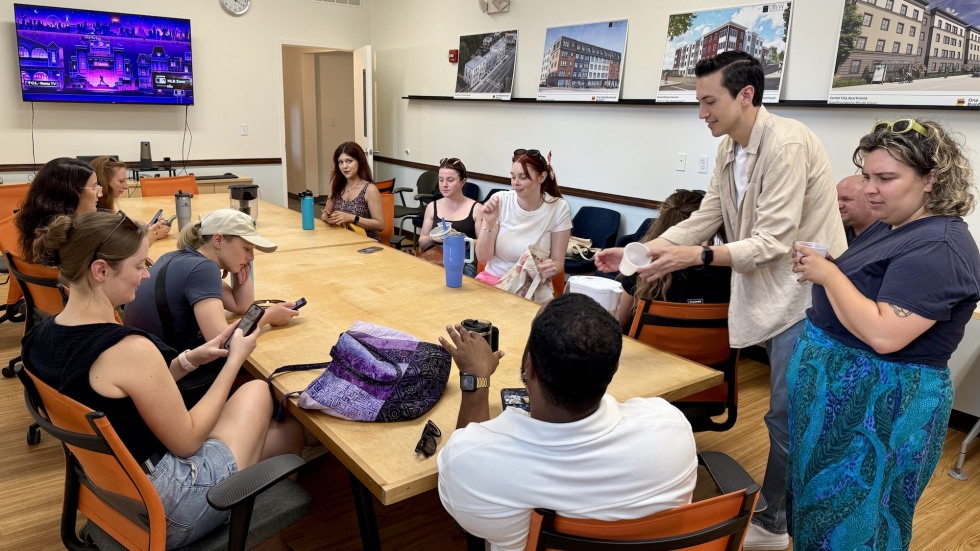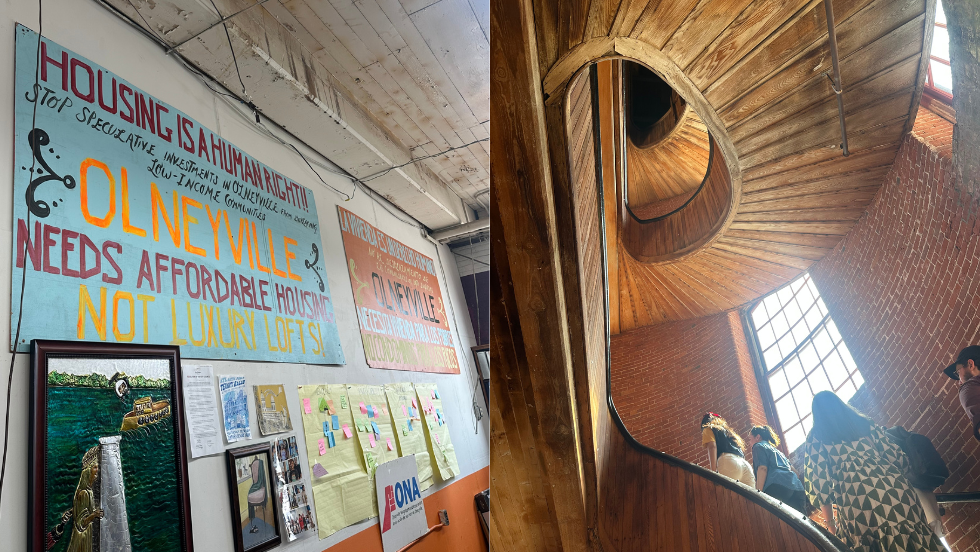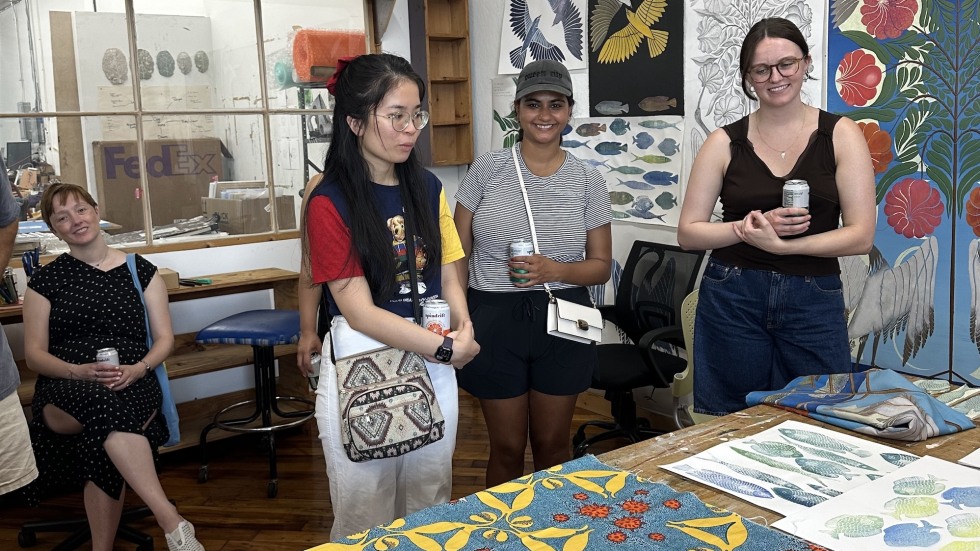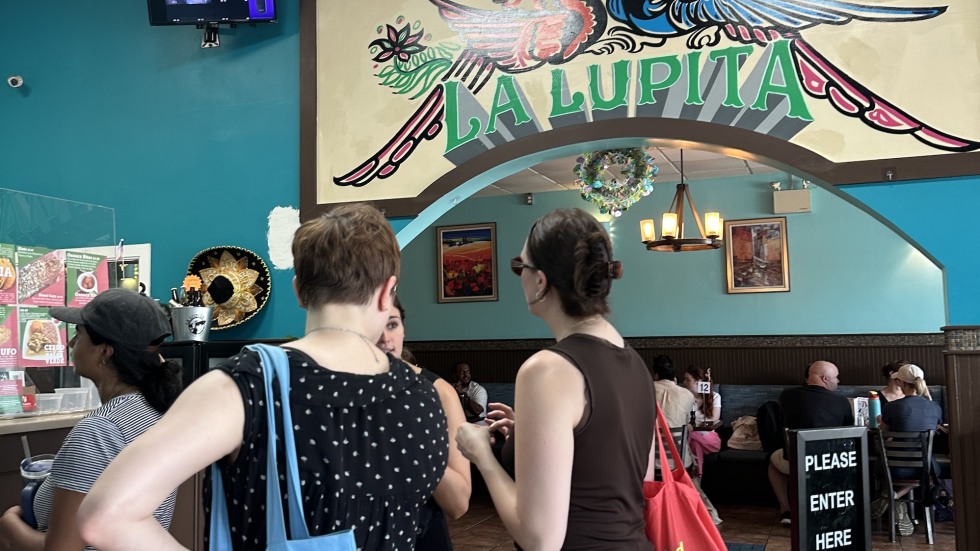New Psychology Residents Walk in the Communities They Will Serve

The psychology residents met at The Swearer Center for Public Service, which arranges tours between Brown University departments and community groups in order to cultivate relationships, develop an understanding of local priorities, and spark future collaborations.

Residents rode a RIPTA bus from the Swearer Center to Olneyville – an opportunity to navigate a public system many Rhode Islanders rely on daily.

One group walked the streets of the health equity zone Central Providence Unidos to learn about the community-based work of the nonprofit One Neighborhood Builders.

Another group visited Atlantic Mills, an historic industrial complex which is now a hub of community commerce, art, and organizing.

They also visited the studio of an artist who uses textile designs to convey important health information to the community.

The cohort reconvened for lunch at La Lupita, a family-run Mexican restaurant in the heart of Olneyville.
This year, for the first time, Brown’s incoming clinical psychology residents began their training at street-level – immersed in the kinds of communities where their patients live.
On July 16, the residents took a community walking tour in the Olneyville neighborhood of Providence, organized by Brown’s Swearer Center for Public Service. The new trainees rode the city’s public bus system, met with artists and community organizers, learned about community responses to housing and healthcare pressures, ate together at a family-run Mexican restaurant, and reflected on what the experience meant for their training and practice.
"We want to prepare the residents to authentically engage with and understand the community, people, and neighborhoods around them, especially as they are starting their clinical placements throughout Providence,” said Lauren Weinstock, PhD, director of the Clinical Psychology Internship Training Program.
Weinstock arranged for the tour after attending last year’s Association of Psychology Postdoctoral and Internship Centers (APPIC) conference, where there had been a presentation on "reflective local practice" – embedding training within the context of local community. Inspired, Weinstock reached out to the Swearer Center to collaborate on a tour that would be most relevant to the residents’ work in Providence. The Center regularly matches community partners and university departments based on shared interests and community-identified priorities.
“These tours…provide Brown affiliates with a window into the place-based work of our partners – helping us move from theory to practice through proximity, listening, and shared learning,” said Joshua Rodriguez, the Center’s associate director of co-curricular learning.
The residents split into two groups for their tours. One group toured the streets of Central Providence Unidos, originally designated a “health equity zone” by the Rhode Island Department of Health. The nonprofit One Neighborhood Builders aims to improve the zone’s health outcomes through affordable housing, economic development, environmental improvements, and increased food access. The touring residents got to see the organization’s work up close, including an urban orchard co-grown with community members.
“It was a cool moment for us to collectively witness the benefits of things beyond individual psychotherapy,” said clinical psychology resident Maria Kalantzis. “The field of clinical psychology has historically had a narrow operational definition of psychopathology. We potentially miss out on the real ways in which community engagement and third spaces can be powerful mitigators against identity-related stress and its psychological and physical consequences.”
The second group of residents toured Atlantic Mills, a sprawling brick complex from Providence’s industrial past, which is now home to artists’ lofts, a church, predominantly Latino-run businesses, a popular flea market, and the Olneyville Neighborhood Association (ONA). The residents visited ONA offices, where they learned about services the Association provides to the neighborhood’s immigrant and low-income communities – such as literacy and computer skills classes, barber training, driver's education, legal assistance, utility bill assistance, and help navigating the complexities of health insurance. The group then visited the studio of artist Eliza Squibb, who showed residents the textiles she designs to share health information with residents facing literacy or language barriers.
“I really appreciated learning about the historical and structural contexts that underlie different neighborhoods in Providence,” said Patricia Garibaldi, a clinical psychology resident on the Atlantic Mills tour. “I think this will help me be a more thoughtful new resident of the city, appreciate all that Providence has to offer, and consider structural factors in my clinical work.”